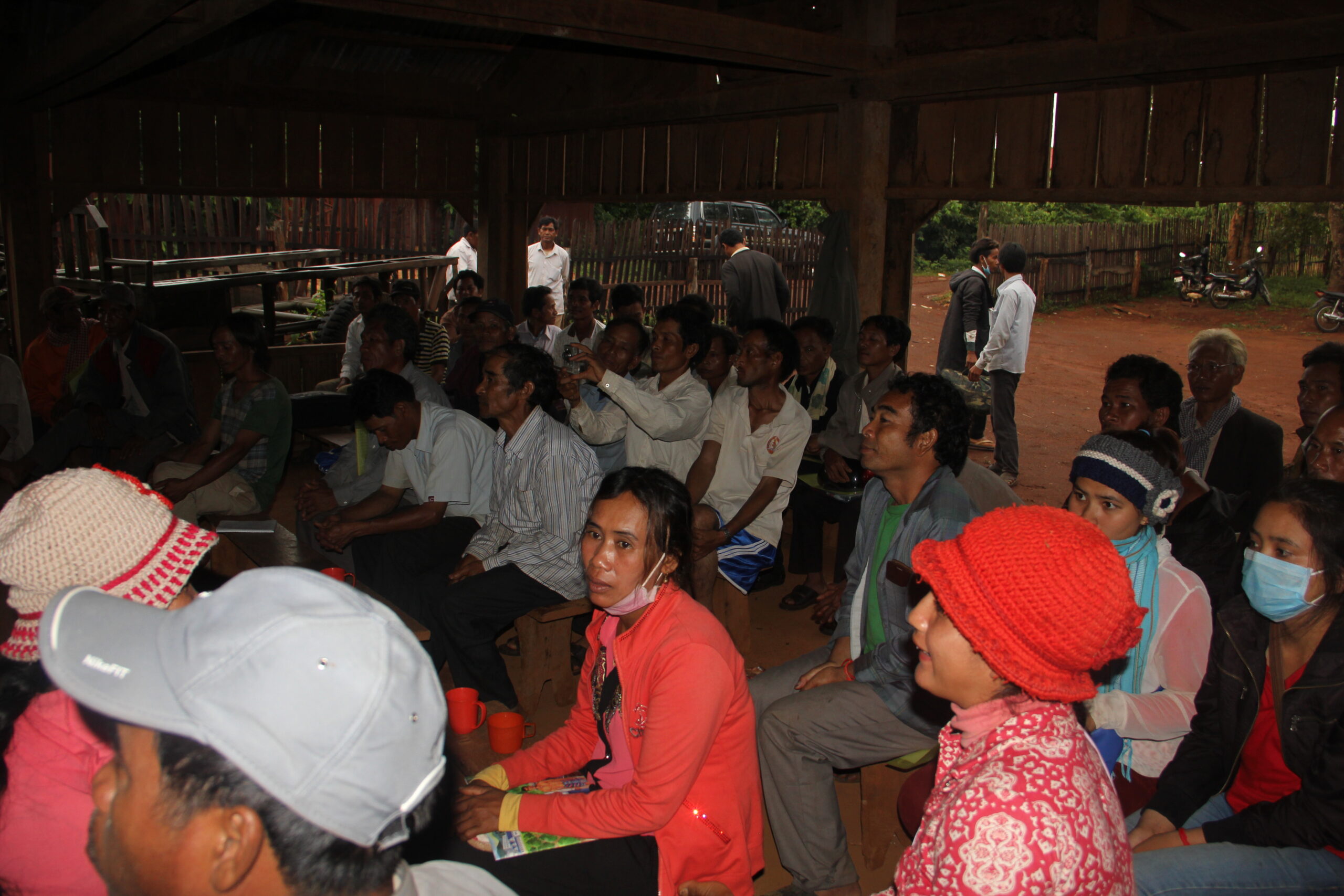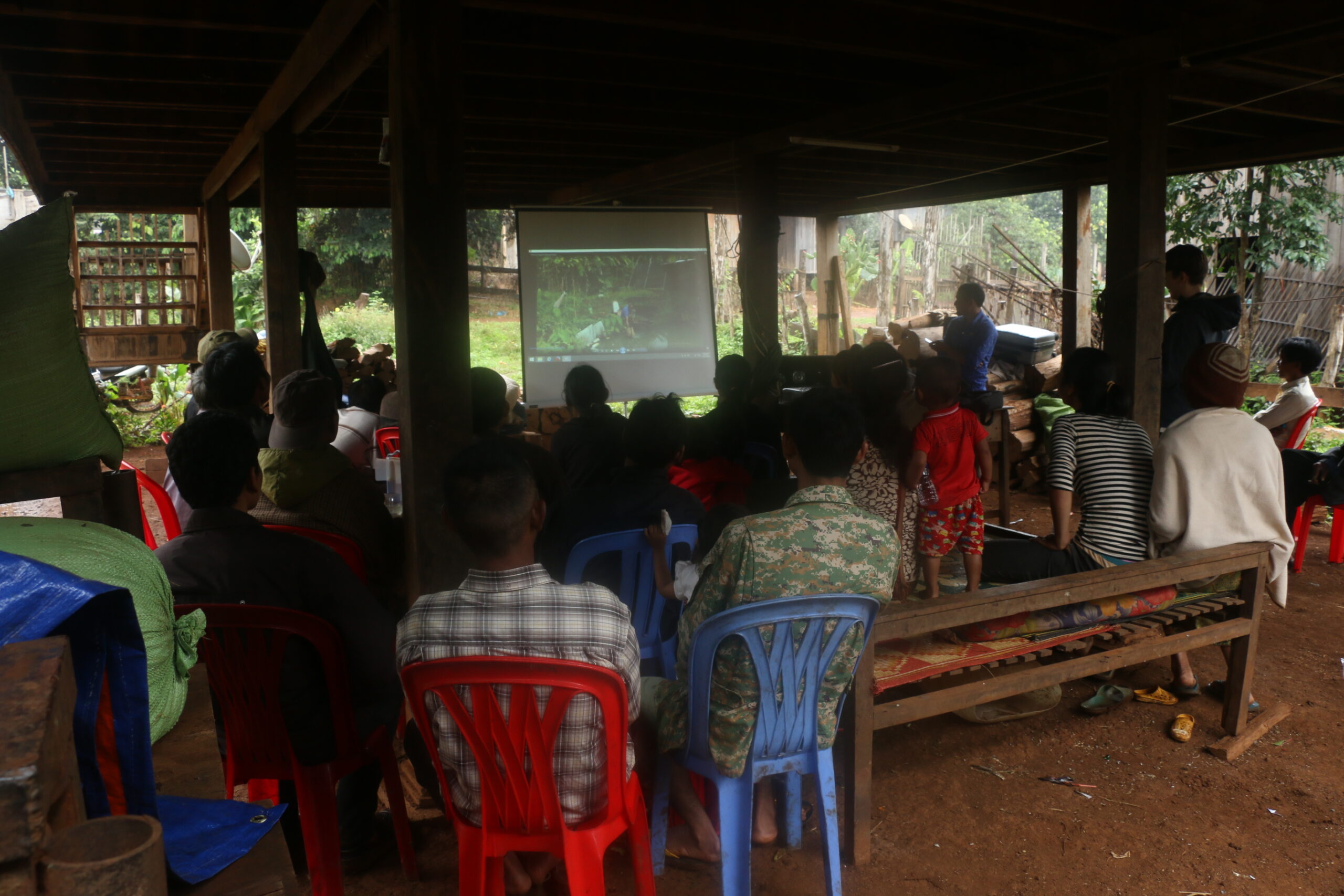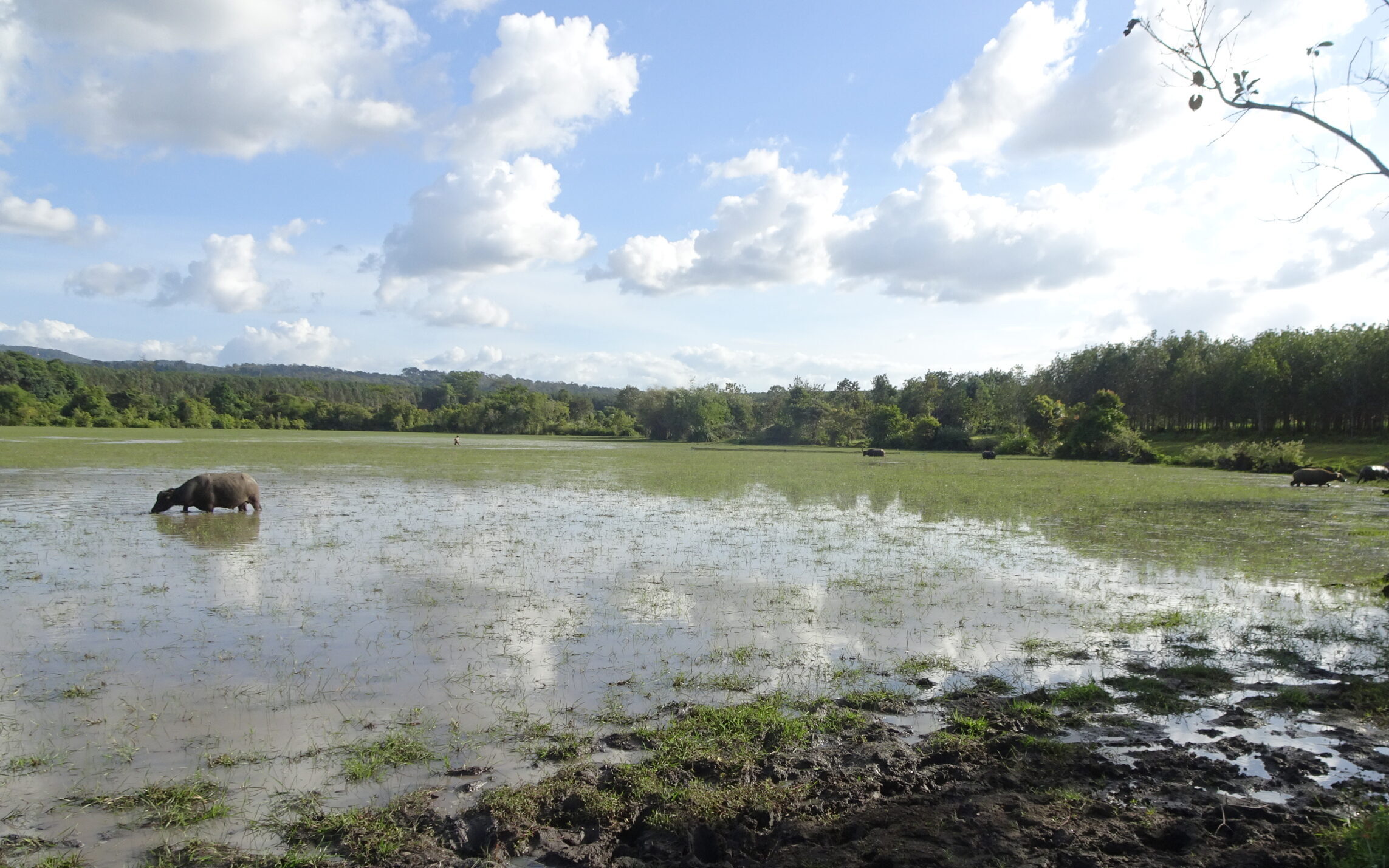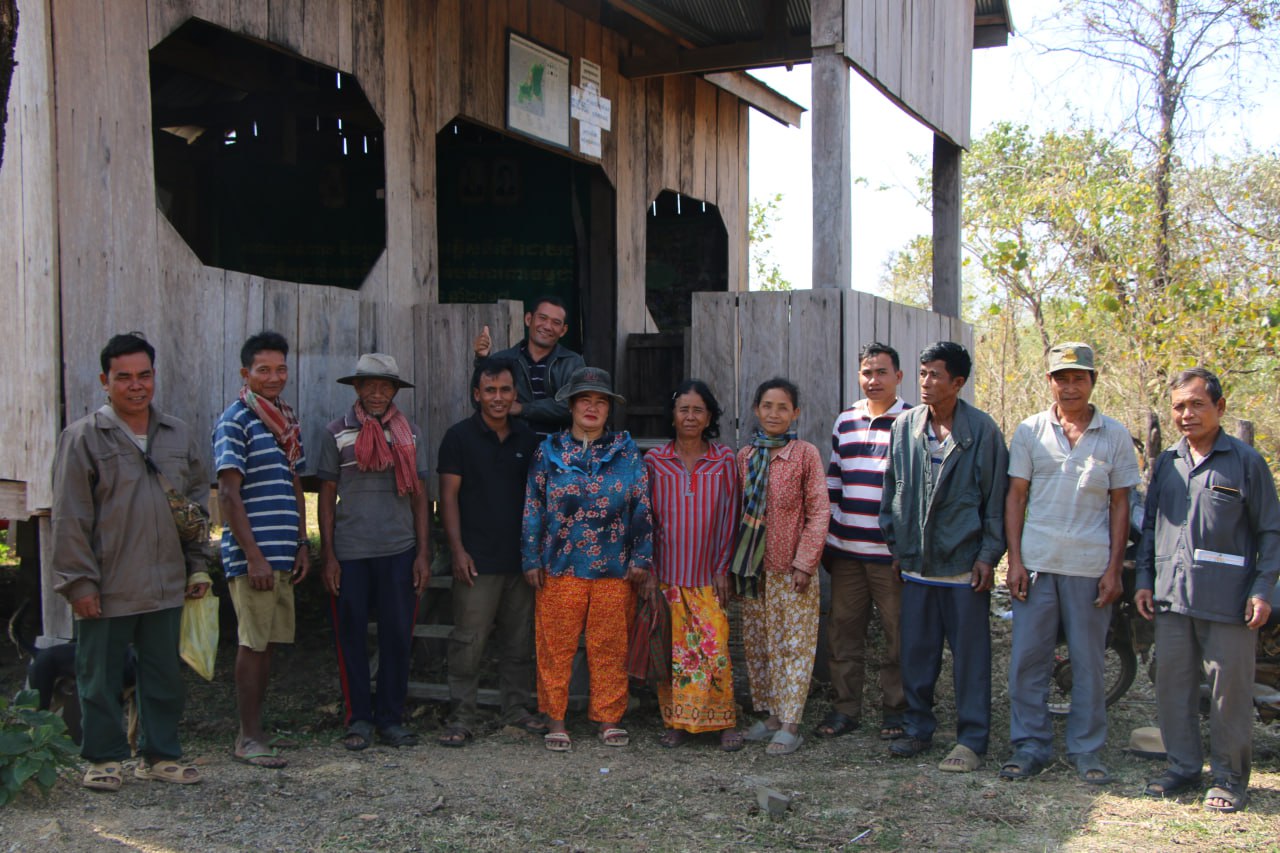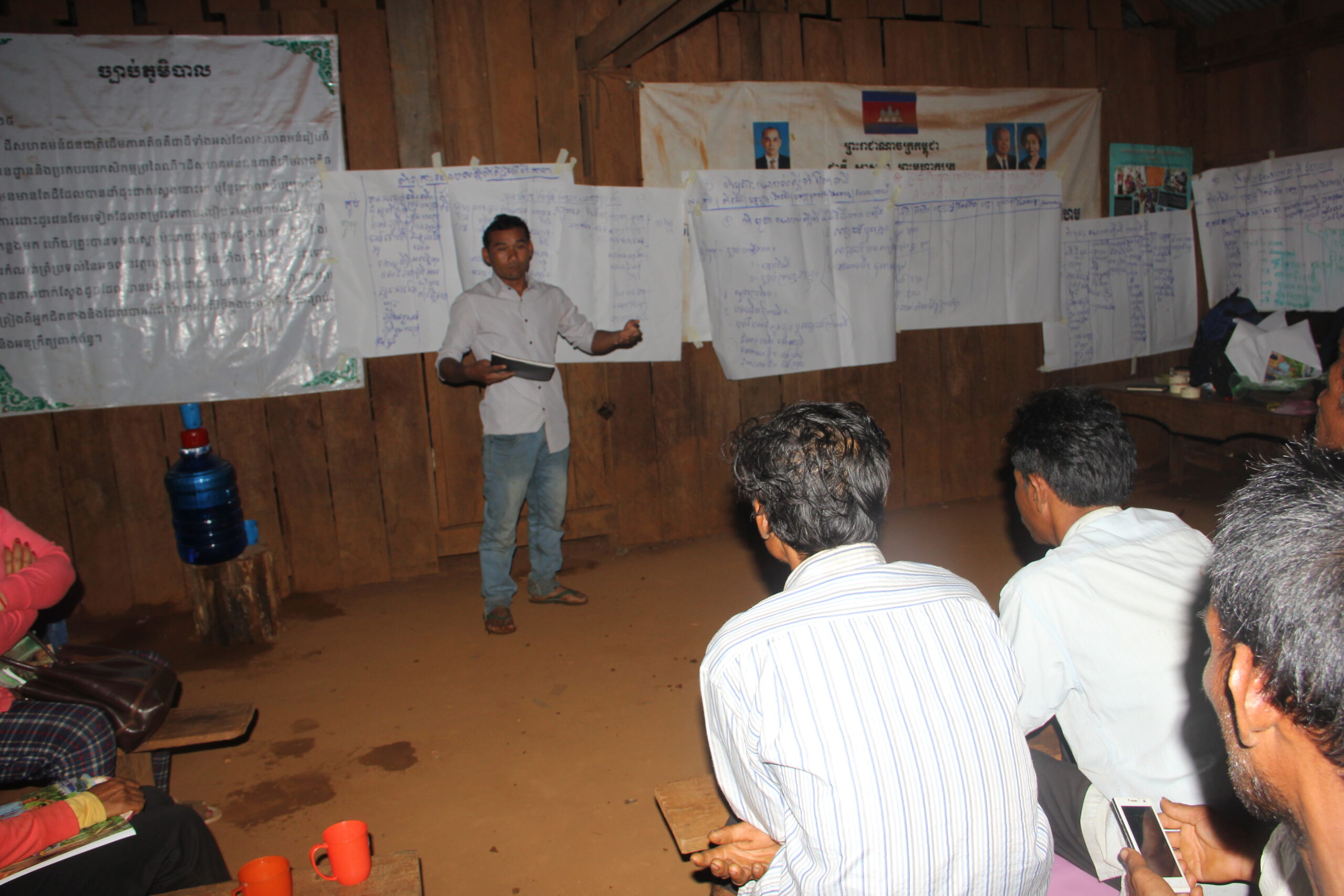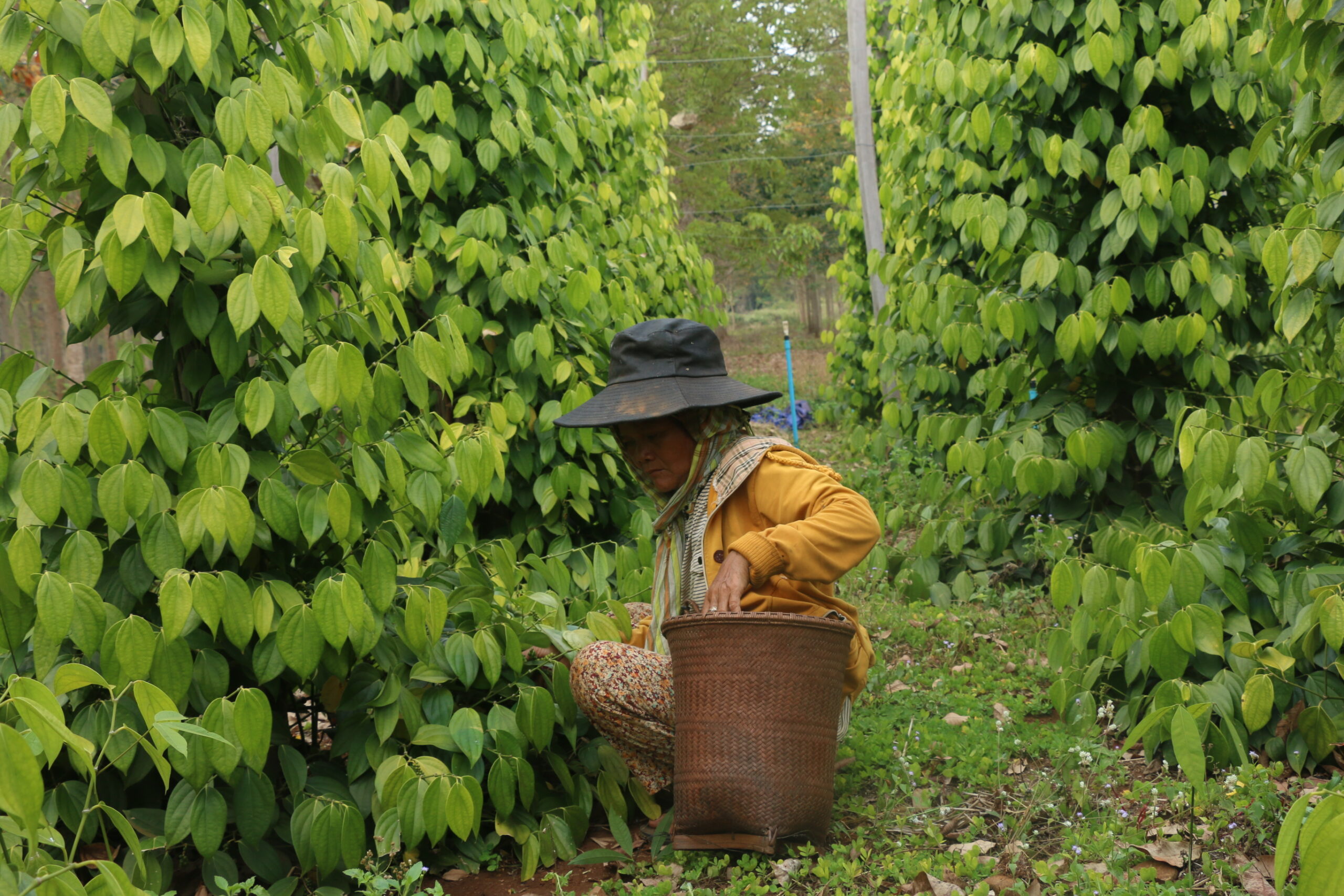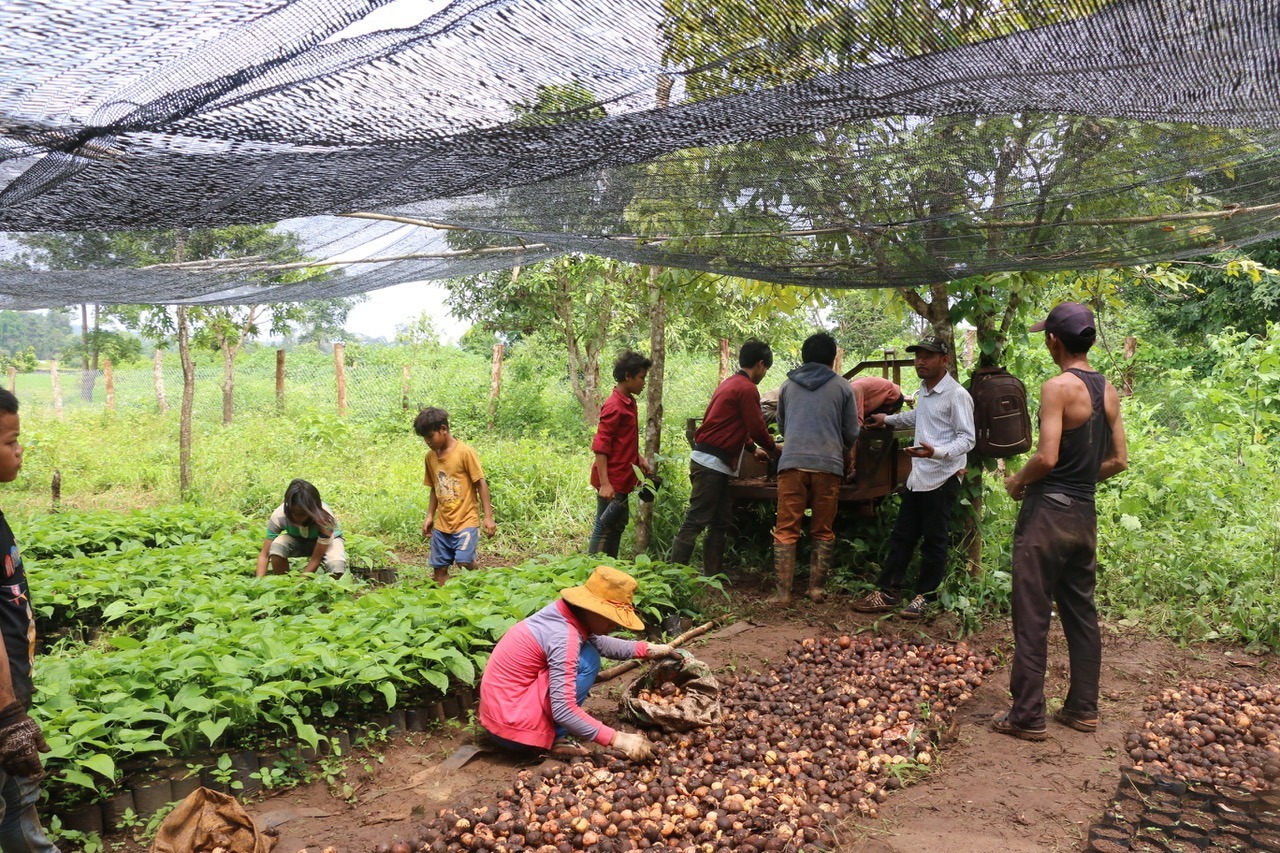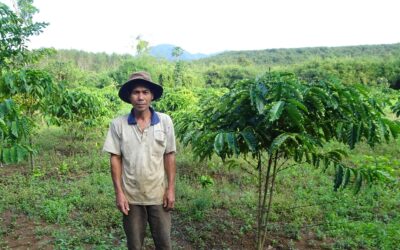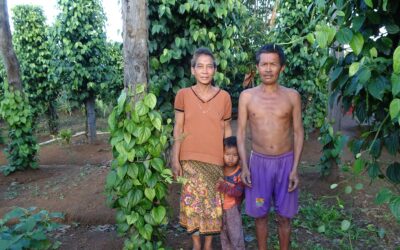Overview Agriculture
To live from the little land that they have left, the Bunong need to learn new ways of farming. BIPA helps them to set up permanent fields of produce in a sustainable way. BIPA provides support and knowledge to the farmers and together we develop ways on how to secure and diversify their livelihoods. This not only helps a few families but the whole commune is profiting from it. The knowledge is shared freely and the communes are again growing closer through it.
The Bunong way of farming
Indigenous Bunong have always been swidden farmers. Swidden farming is a form of farming where land to cultivated in rotation. This way, each part of the land only gets intensively used for a couple of years and is then left for several years to recover. Often times, lands were owed not by a single family but by a village.
But times have changed, economical changes put a lot of pressure on their livelihoods and some Bunong sold their lands, often they were tricked into this. Other pieces of land are being occupied by settlers or companies. A lot of forests had been cut down because the sales of wood is very profitable.
All this has led to a lot of disagreement in Bunong communities. And the Bunong are struggling to survive.
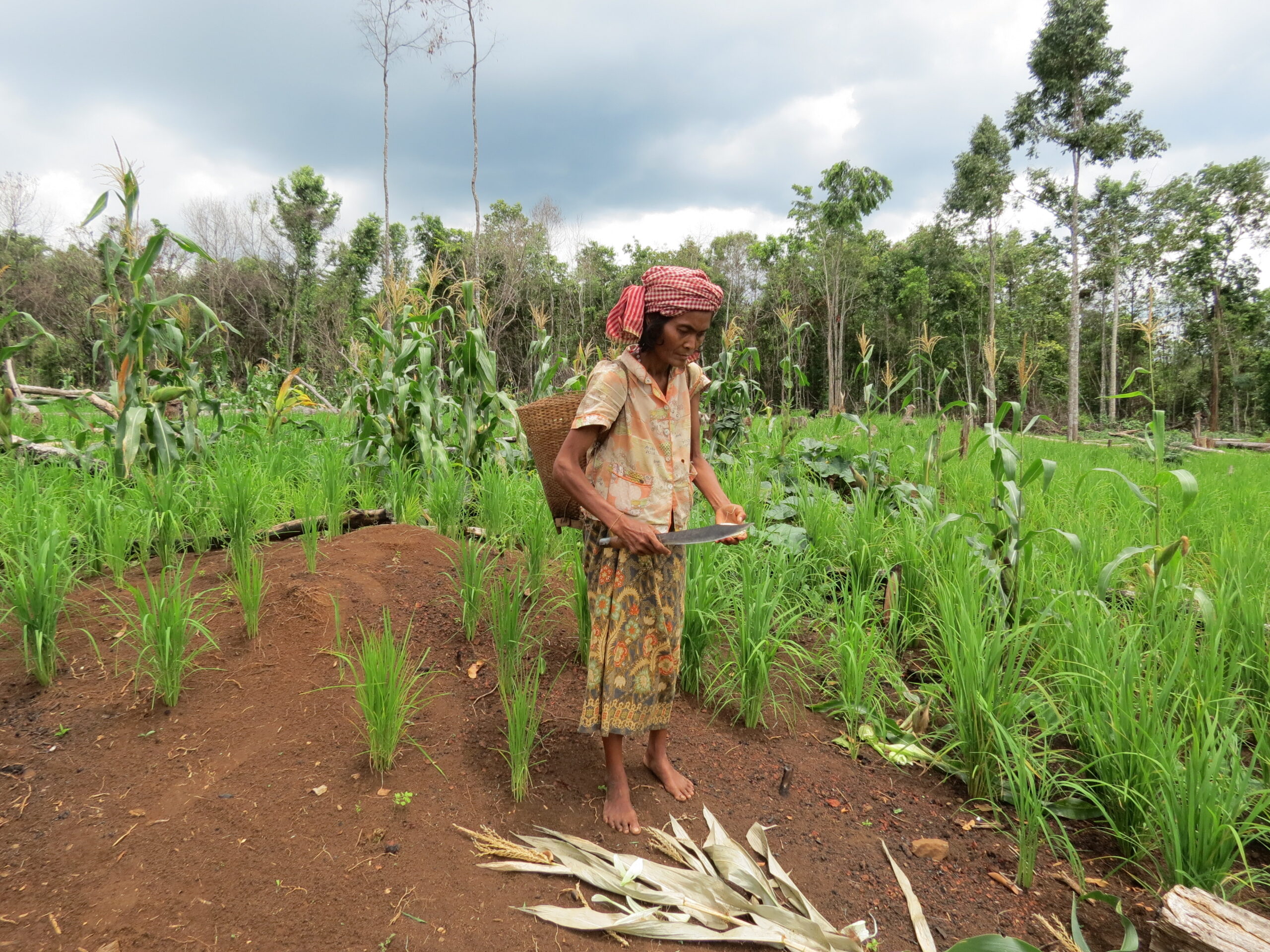
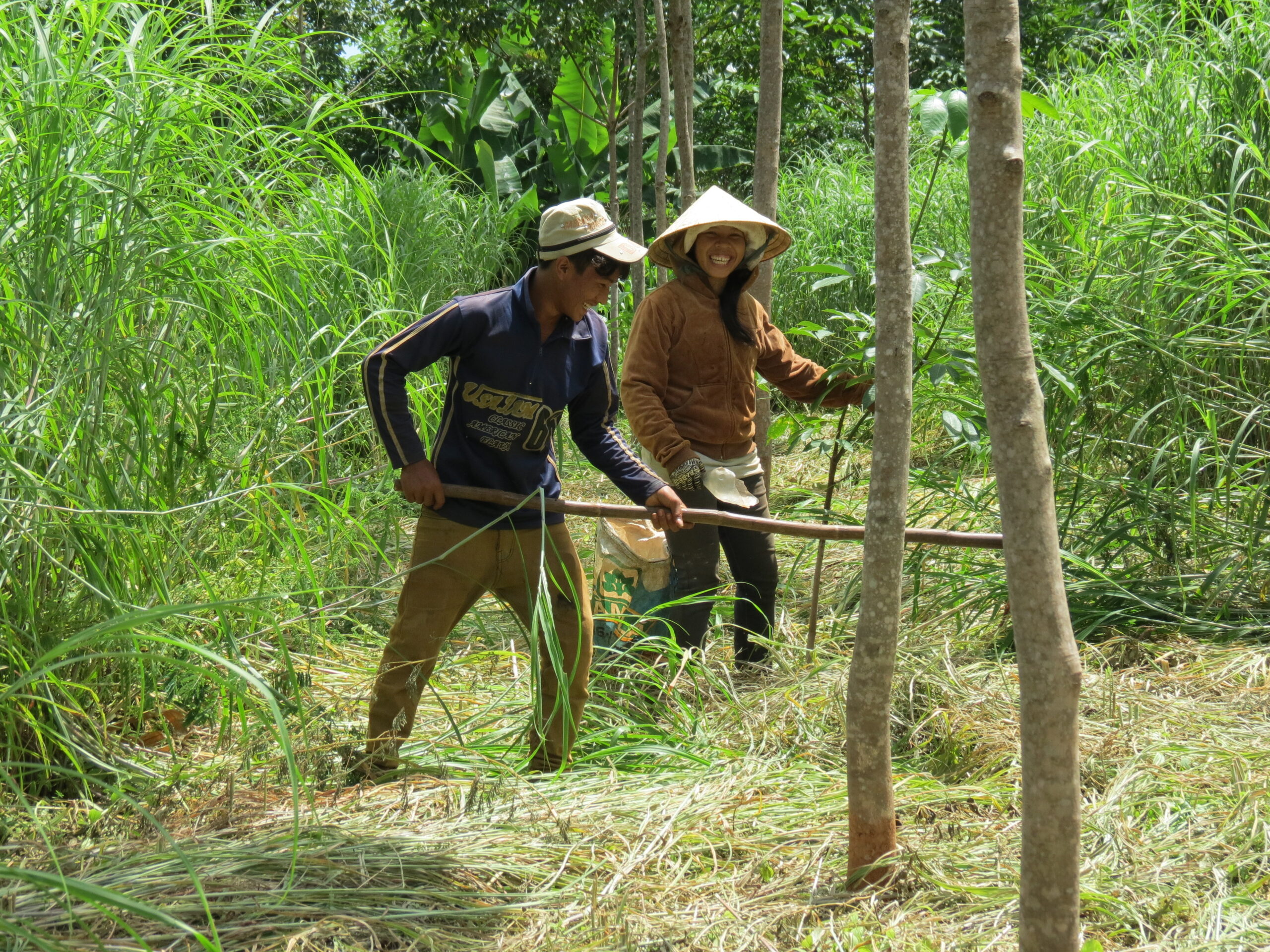
What BIPA does
We know and experience the everyday life struggles of the Bunong communities.
We see what is needed and know the best way to provide help.
We organize gatherings for farmers in this region.
Farmers regularly meet up at the office of BIPA to talk about current problems, news and their experiences in cultivating certain plans or marketing the products.
BIPA grows a variety of seedling and sells them to the farmers for an affordable price or for free. This way they can diversify their cultivations which brings them more security of their livelihoods
BIPA makes films on current and important topics for Bunong farmers. Films are an important media because a lot of Bunong can’t read. But films can be shared and shown anywhere and from our experience these films make a big difference.
Since there are no longer enough forest and grazing areas for the Bunong cows and buffaloes to graze freely, each of the animal-owing family’s needs a person to look after their 3-5 cows and buffaloes. This ties up much needed workforce of 50-60 people per village who cannot work on the farm or do paid labor, or the children cannot go to school during this time. Therefore, BIPA organizes meetings in the villages of Busra to discuss about how the economic situation of the families can be improved by forming Community Animal groups who look after all the animals in turn. We support the families to organize themselves and to identify suitable community grazing grounds in their villages.
The communal grazing ground programm is extended, by sharing experiences and learning alternative methods in group trainings on diseases and their treatment as well as on feeding, it is also easier to ensure the health of the animals within the Community Animal Group.
In 2023, at the request of Bunong village communities in other districts who wish to benefit from the experience of the farmers in Busra, we have started a peer-to-peer program in sustainable agriculture with 26 farmers as multipliers for about 500 families.
BIPA teaches the farmers how to make their own organic fertilizer.
They used to leave their lands to restore itself when the nutrients in the ground have been used up. They never had the need for fertilizers. But now they are learning the value of it and the dangers of using herbicide, insecticides and chemical fertilizers.
Through the exchange program to Vietnam in 2013, Bunong in Vietnam shared their experiences and practices on growing pepper, coffee and rubber to Bunong farmers of Busra. Thanks to seedlings that the (they) participants received in Vietnam, they were able to start growing them here successfully.
BIPA staff advises farmers in technical know-how and teaching. The training sessions are especially targeted to help them understand the new farming methods by referring to their own known concepts, and thus facilitating the transition.
Latest News
Interview with an animal group member
Here you can add a short summary of no more than 3 sentences. OR delete it and it will automatically take the first 20 words of the blog text.
Interview with a member of the pepper group
Here you can add a short summary of no more than 3 sentences. OR delete it and it will automatically take the first 20 words of the blog text.
Our work in numbers:
Bunong indigenous communities reached with agricultural projects
families organized in pepper group
Families reached with our technical support
Families organized in 3 animal groups
Families organized in rubber group
families organized in coffee group
Number of seedlings provided to families:
So far BIPA provided 250’000 seedlings to families
Pepper seedlings
Cashew seedlings
Coffee seedlings
Rubber seedlings
Avocado seedlings
How You Can Get Involved
Our future plans
What are BIPA’s next projects, they want to set up. What are the next goals which they want to reach.
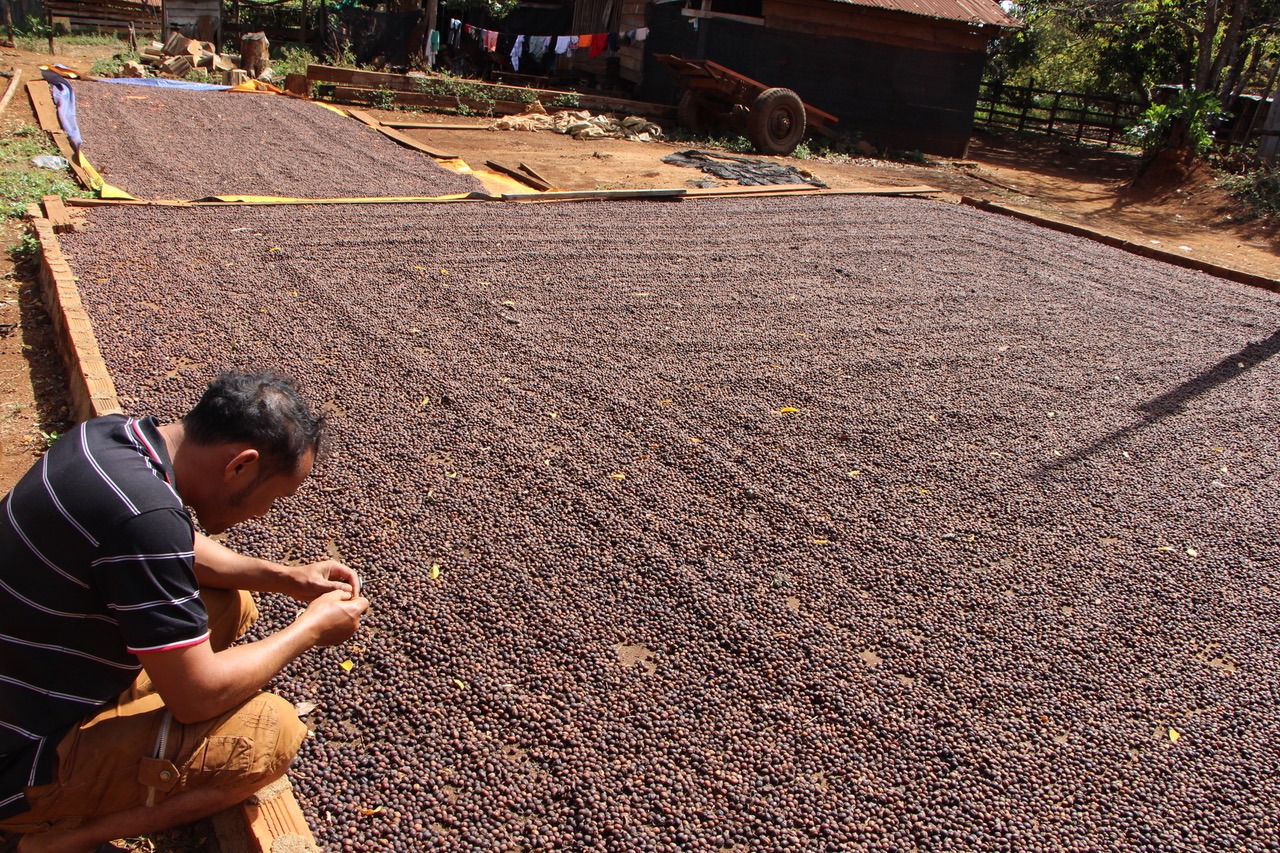
Establish the coffee from Buong farmers as a high-quality coffee brand
BIPA has the vision to establish the coffee from Bunong farmers as a high-quality coffee brand
The BIPA Bunong coffee group comprising of 300 families has become the biggest group of private producers in Mondulkiri Province. We have the vision that Bunong coffee will become famous as organic high-quality coffee. Bunong indigenous coffee from Mondulkiri should become an esteemed brand among coffee lovers. BIPA supports the producers with technical expertise in their own language and in culturally appropriate ways to produce organic high-quality coffee.
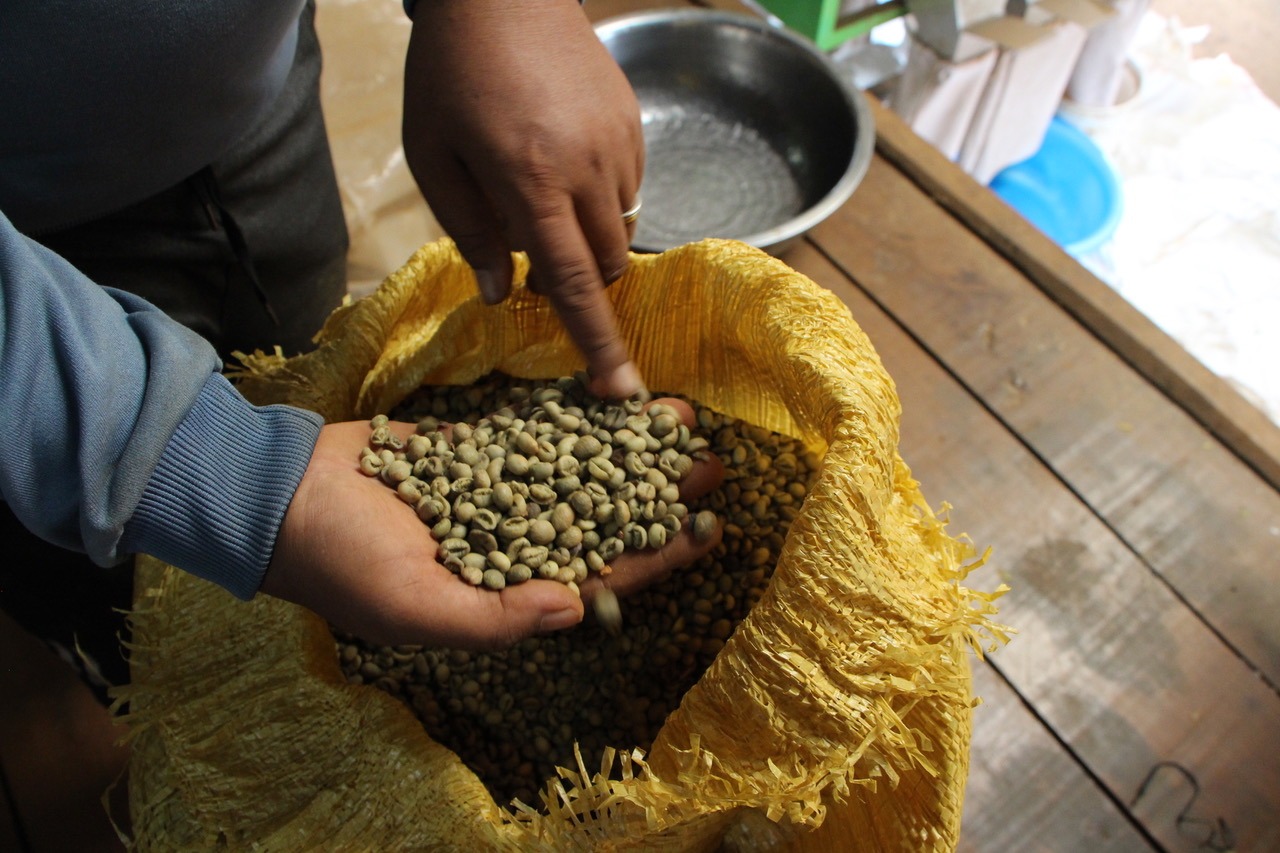
Enhance local processing of coffee
BIPA supports Bunong farmers with technical training in Bunong language to enhance local processing of coffee. Right now, it is most convenient for the farmers to sell their coffee as green beans right from their farm-gate to buyers. However, this way, the farmers miss the opportunity to achieve a higher quality by further sorting their coffee by size and quality, with which they can achieve a higher price for the selected coffee. They miss an enhanced net gain of $ 80-100 per ton, which means for an average producer a loss of around $ 300-400. By supporting them we achieve that they have more income and that the coffee of the Bunong producers gets famous for its high quality.

